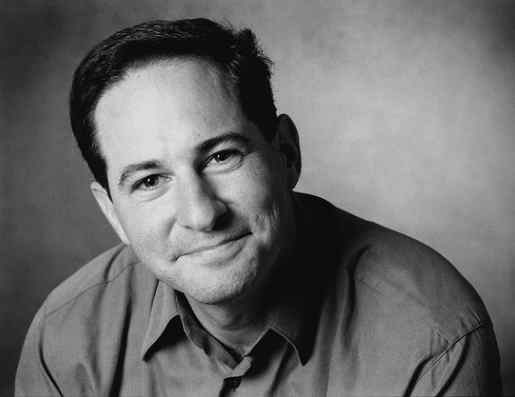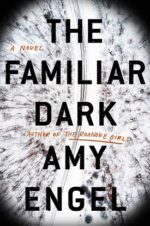 Synopsis:
Synopsis:
Andy Barber is a seasoned prosecutor. At the age of fifty, he is the senior assistant to the District Attorney and used to litigating the most complex and high profile cases. When fourteen-year-old Ben Rifkin is found murdered on an April morning — his body abandoned in the park with three parallel, jagged knife wounds to the chest — Andy immediately springs into action, working side-by-side with long-time colleague and friend Paul Duffy, who is in charge of the investigation. Andy perceives no actual or apparent conflict of interest upon learning that the murdered boy is one of his son’s classmates. After all, who could want the case solved more than a parent whose child attends the same school and passes through the same wooded park each day en route to his classes?
It never occurs to Andy or his wife, Laurie, that their own son, Jacob, could be implicated in the crime until disturbing information starts coming to light. Odd postings on Jacob’s Facebook wall, including one from Jacob’s lifelong best friend, Derek, accusing Jacob of killing Ben unsettle Andy, who is determined to pursue a known child molester who resides in the area. And then there is the knife that Andy finds in Jacob’s room. With its serrated edges, could it be the murder weapon?
When Jacob’s fingerprint is found on Ben’s bloody clothing, Andy is not only removed from the case, but placed on administrative leave and Jacob is charged with murder. Only then does Andy confess the truth about his past to Laurie, the woman he has loved since they were seventeen years old.
Jacob insists that he is innocent. Andy and Laurie both love their son completely and want to believe in his innocence. But as their lives are consumed by preparation for Jacob’s trial, the strain of worry and wonder threatens to destroy their marriage and their futures, as well as their son’s. Everything Andy has believed in and counted upon is called into question.
Review:

No one can ever truly know another human being. Even as well as parents believe they know their child, they can never fully appreciate what goes on inside the mind of their child, what dreams the child experiences at night, what unrevealed demons the child battles. Parents bring children into the world and hope for the best, that their efforts will be enough to prepare and sustain them as they grow and embark on their own journey. Against that backdrop, Landay portrays the Barber family, an unremarkable trio. Two professional parents who conceived their only child fairly late in life, and have devoted themselves to him and the family they have formed, face the most harrowing, nightmarish trial imaginable.
The story touches on ordinary, universal emotions about family and children. It raises a whole slew of questions that will feel awfully familiar to every parent and every family: Why do children behave as they do? How much is “hardwired” in their nature, how much is shaped by nurture? Why do good families sometimes produce bad children, or at least flawed children? What should parents do when a child begins to show signs of trouble? How far should you go in defending your child? . . . I think all parents will see traces of their own hopes and anxieties in Laurie and Andy Barber.~ Author William Landay
At the center of the story, narrating it, is Andy, who grew up without a father and has steadfastly hidden the truth about his lineage from everyone, including his beloved wife. A highly successful prosecutor, no one is more familiar with the intricacies of the criminal justice system and all of its nuances and foibles. Andy knows all too well that the system doesn’t always work the way it is designed to and that all involved bend the rules from time to time in the name of the greater good. Overall, however, he has always had faith that justice is ultimately done. But can his faith sustain him when his only child’s freedom is on the line?
Meanwhile, Laurie, the eternal optimist, communicator, and, according to Andy, captain of their little family, finds her maternal doubts bubbling to the surface when disturbing facts about Jacob begin coming to light. No one knows a child like his/her mother and intuition should never be doubted, but Laurie does not want to believe what her instincts are telling her about her son. Worse, information uncovered during trial preparation only seems to confirm what she has suspected, but never voiced, from the time Jacob was a toddler. Seen through the eyes of the man who has loved her since they were seventeen years old, Laurie is a woman trying desperately to hold on, but losing the battle inch by inch. Landay masterfully and poignantly describes her disintegration as preparation for the trial drags on and then, at last, the proceeding begins. Andy observes that when he looks at her, he still sees the vibrant, energetic young woman who stole his heart and was always asleep the moment her head hit the pillow. But the reality of their circumstances intrudes from time to time, forcing him to note that Laurie no longer sleeps well at all, has lost a significant amount of weight, and has bags under her eyes. In one excruciatingly revealing moment, Andy observes that Laurie is wearing her sweatshirt backwards, but does not seem to notice even as the tag rubs up against her chin. The periodic realizations startle and sadden Andy, just as the increasing emotional distance between them frightens him. For her part, Laurie wants honesty from Andy, not platitudes, but that is the one thing he finds increasingly hard to give her, largely because he no longer knows what the truth is — or even how to recognize it.
Jacob appears to be a normal fourteen-year-old boy who is neither popular nor particularly disliked. Rather, he and his few friends are the kids that no one seems to really notice at school. They skate around the fringes of their classmates’ consciousness — not smart enough to be considered part of the brainy crowd, not athletic, never in trouble. Just rather geeky and undefined. Jacob is quiet and spends a lot of time, like most adolescents, mumbling begrudging responses to his parents’ questions, and locking himself in his room where he frequents the internet and communicates with his friends via text message. But when Andy discovers that some of Jacob’s activities are shocking and disturbing, he wonders, as would any parent, how he has managed to miss warning signs about his son’s behavior and psychological state.
Landay’s portrayal of both Andy and Laurie are spot-on and entirely believable. He expertly builds dramatic tension from the very first page, as Andy squares off before the grand jury with the ambitious prosecutor he trained. What that grand jury proceeding is addressing and why Andy is testifying are mysteries as Andy relates the details surrounding Ben’s murder and how Jacob came to be accused. Raising the book’s credibility, Landay takes few licenses with the legal details, including the deftly choreographed courtroom scenes.
From the outset, it is apparent that Defending Jacob is no run-of-the-mill thriller as Landay unfolds layer after nuanced layer of the story. Key plot points are perfectly timed to holder reader interest, as empathy and compassion for Andy and Laurie builds, along with curiosity about whether Jacob is guilty and, if not, who killed Ben, all leading to a heart-stopping conclusion that many readers will find utterly shocking.
Defending Jacob is a fascinating tale to which any parent will be able to relate and readily lends itself to book club discussion. Defending Jacob is a gripping legal thriller that unabashedly delves into the inner workings of both the legal system and the human spirit. While Landay maintains that, as a storyteller, it is not his place to tell the reader what to think. He does “suspect that, after being Andy Barber for a while, readers will return to their own families with fresh eyes. I certainly hope so, anyway. Tolstoy was wrong: happy families are not all alike. If you’re lucky enough to have one, as I do, be thankful. It can all be taken from you.”
Excerpt from Defending Jacob
Chapter 1: In the Grand Jury
Mr. Logiudice: State your name, please.
Witness: Andrew Barber.
Mr. Logiudice: What do you do for work, Mr. Barber?
Witness: I was an assistant district attorney in this county for 22 years.
Mr. Logiudice: “Was.” What do you do for work now?
Witness: I suppose you’d say I’m unemployed.
In April 2008, Neal Logiudice finally subpoenaed me to appear before the grand jury. By then it was too late. Too late for his case, certainly, but also too late for Logiudice. His reputation was already damaged beyond repair, and his career along with it. A prosecutor can limp along with a damaged reputation for a while, but his colleagues will watch him like wolves and eventually he will be forced out, for the good of the pack. I have seen it many times: an ADA is irreplaceable one day, forgotten the next.
I have always had a soft spot for Neal Logiudice (pronounced la-JOO-dis). He came to the DA’s office a dozen years before this, right out of law school. He was twenty-nine then, short, with thinning hair and a little pot belly. His mouth was overstuffed with teeth; he had to force it shut, like a full suitcase, which left him with a sour, pucker-mouthed expression. I used to get after him not to make this face in front of juries — nobody likes a scold — but he did it unconsciously. He would get up in front of the jury box shaking his head and pursing his lips like a schoolmarm or a priest, and in every juror there stirred a secret desire to vote against him. Inside the office, Logiudice was a bit of an operator and a kiss-ass. He got a lot of teasing. Other ADA’s tooled on him endlessly, but he got it from everyone, even people who worked with the office at arm’s length, cops, clerks, secretaries, people who did not usually make their contempt for a prosecutor quite so obvious. They called him Milhouse, after a dweeby character on “The Simpsons,” and they came up with a thousand variations on his name: LoFoolish, LoDoofus, Sid Vicious, Judicious, on and on. But to me, Logiudice was okay. He was just innocent. With the best intentions, he smashed people’s lives and never lost a minute of sleep over it. He only went after bad guys, after all. That is the Prosecutor’s Fallacy — they are bad guys because I am prosecuting them — and Logiudice was not the first to be fooled by it, so I forgave him for being righteous. I even liked him. I rooted for him precisely because of his oddities, the unpronounceable name, the snaggled teeth — which any of his peers would have had straightened with expensive braces, paid for by Mummy and Daddy — even his naked ambition. I saw something in the guy. An air of sturdiness in the way he bore up under so much rejection, how he just took it and took it. He was obviously a working-class kid determined to get for himself what so many others had simply been handed. In that way, and only in that way, I suppose, he was just like me.
Now, a dozen years after he arrived in the office, despite all his quirks, he had made it, or nearly made it. Neal Logiudice was First Assistant, the number-two man in the Middlesex District Attorney’s Office, the DA’s right hand and chief trial attorney. He took over the job from me — this kid who once said to me, “Andy, you’re exactly what I want to be someday.” I should have seen it coming.
In the grand jury room that morning, the jurors were in a sullen, defeated mood. They sat, thirty-odd men and women who had not been clever enough to find a way out of serving, all crammed into those school chairs with a teardrop-shaped desk for a chair-arm. They understood their jobs well enough by now. Grand juries serve for months, and they figure out pretty quickly what the gig is all about: accuse, point your finger, name the wicked one.
A grand jury proceeding is not a trial. There is no judge in the room and no defense lawyer. The prosecutor runs the show. It is an investigation and in theory a check on the prosecutor’s power, since the grand jury decides whether the prosecutor has enough evidence to haul a suspect into court for trial. If there is enough evidence, the grand jury grants the prosecutor an indictment, his ticket to Superior Court. If not, they return a “no bill” and the case is over before it begins. In practice, “no bill”s are rare. Most grand juries indict. Why not? They only see one side of the case.
But in this case, I suspect the jurors knew Logiudice did not have a case. Not today. The truth was not going to be found, not with evidence this stale and tainted, not after everything that had happened. It had been over a year already — over twelve months since the body of a fourteen-year-old boy was found in the woods with three stab wounds arranged in a line across the chest as if he’d been forked with a trident. But it was not the time, so much. It was everything else. Too late, and the grand jury knew it.
I knew it, too.
Only Logiudice was undeterred. He pursed his lips in that odd way of his. He reviewed his notes on a yellow legal pad, considered his next question. He was doing just what I’d taught him. The voice in his head was mine: Never mind how weak your case is. Stick to the system. Play the game the same way it’s been played the last 500-odd years, use the same gutter tactic that has always governed cross-examination — lure, trap, fuck.
He said, “Do you recall when you first heard about the Rifkin boy’s murder?”
“Yes.”
“Describe it.”
“I got a call, I think, first from CPAC — that’s the state police. Then two more came in right away, one from the Newton police, one from the duty DA. I may have the order wrong, but basically the phone started ringing off the hook.”
“When was this?”
“Thursday, April 12, 2007, around nine A.M., right after the body was discovered.”
“Why were you called?”
“I was the First Assistant. I was notified of every murder in the county. It was standard procedure.”
“But you did not keep every case, did you? You did not personally investigate and try every homicide that came in?”
“No, of course not. I didn’t have that kind of time. I kept very few homicides. Most I assigned to other ADA’s.”
“But this one you kept.”
“Yes.”
“Did you decide immediately that you were going to keep it for yourself, or did you only decide that later?”
“I decided almost immediately.”
“Why? Why did you want this case in particular?”
“I had an understanding with the district attorney, Lynn Canavan: certain cases I would try personally.”
“What sort of cases?”
“High-priority cases.”
“Why you?”
“I was the senior trial lawyer in the office. She wanted to be sure that important cases were handled properly.”
“Who decided if a case was high profile?”
“Me, in the first instance. In consultation with the district attorney, of course, but things tend to move pretty fast at the beginning. There isn’t usually time for a meeting.”
“So you decided the Rifkin murder was a high-priority case?”
“Of course.”
“Why?”
“Because it involved the murder of a child. I think we also had an idea it might blow up, catch the media’s attention. It was that kind of case. It happened in a wealthy town, with a wealthy victim. We’d already had a few cases like that. At the beginning we did not know exactly what it was, either. In some ways it looked like a schoolhouse killing, a Columbine thing. Basically, we didn’t know what the hell it was, but it smelled like a big case. If it had turned out to be a smaller thing, I would have passed it off later, but in those first few hours I had to be sure everything was done right.”
“Did you inform the district attorney that you had a conflict of interest?”
“No.”
“Why not?”
“Because I didn’t have one.”
“Wasn’t your son Jacob a classmate of the dead boy?”
“Yes, but I didn’t know the victim. Jacob didn’t know him either, as far as I was aware. I’d never even heard the dead boy’s name.”
“You did not know the kid. All right. But you did know that he and your son were in the same grade at the same middle school in the same town?”
“Yes.”
“And you still didn’t think you were conflicted out? You didn’t think your objectivity might be called into question?”
“No. Of course not.”
“Even in hindsight? You insist, you — Even in hindsight, you still don’t feel the circumstances gave even the appearance of a conflict?”
“No, there was nothing improper about it. There was nothing even unusual about it. The fact that I lived in the town where the murder happened? That was a good thing. In smaller counties, the prosecutor often lives in the community where a crime happens, he often knows the people affected by it. So what? So he wants to catch the murderer even more? That’s not a conflict of interest. Look, the bottom line is, I have a conflict with all murderers. That’s my job. This was a horrible, horrible crime; it was my job to do something about it. I was determined to do just that.”
“Okay.” Logiudice lowered his eyes to his pad. No sense attacking the witness so early in his testimony. He would come back to this point later in the day, no doubt, when I was tired. For now, best to keep the temperature down.
“You understand your Fifth Amendment rights?”
“Of course.”
“And you have waived them?”
“Apparently. I’m here, I’m talking.”
Titters from the grand jury.
Logiudice laid down his pad, and with it he seemed to set aside his game plan for a moment. “Mr. Barber — Andy — could I just ask you something: why not invoke it? Why not remain silent?” The next sentence he left unsaid: That’s what I would do.
I thought for a moment that this was a tactic, a bit of playacting. But Logiudice seemed to mean it. He was worried I was up to something. He did not want to be tricked, to look like a fool.
I said, “I have no desire to remain silent. I want the truth to come out.”
“No matter what?”
“I believe in the system, same as you, same as everyone here.”
Now, this was not exactly true. I do not believe in the court system, at least I do not think it is especially good at finding the truth. No lawyer does. We have all seen too many mistakes, too many bad results. A jury verdict is just a guess — a well-intentioned guess, generally, but you simply cannot tell fact from fiction by taking a vote. And yet, despite all that, I do believe in the power of the ritual. I believe in the religious symbolism, the black robes, the marble-columned courthouses like Greek temples. When we hold a trial, we are saying a mass. We are praying together to do what is right and to be protected from danger, and that is worth doing whether or not our prayers are actually heard.
Of course, Logiudice did not go in for that sort of solemn bullshit. He lived in the lawyer’s binary world, guilty or not guilty, and he was determined to keep me pinned there.
“You believe in the system, do you?” he sniffed. “All right, Andy, let’s get back to it, then. We’ll let the system do its work.” He gave the jury a knowing, smart-ass look.
Attaboy, Neal. Don’t let the witness jump into bed with the jury — you jump into bed with the jury. Jump in there and snuggle right up beside them under the blanket and leave the witness out in the cold. I smirked. I would have stood up and applauded if I’d been allowed to, because I taught him to do precisely this. Why deny myself a little fatherly pride? I must not have been all bad — I turned Neal Logiudice into a half-decent lawyer after all.
“So go on already,” I said, nuzzling the jury’s neck. “Stop screwing around and get on with it, Neal.”
He gave me a look, then picked up his yellow pad again and scanned it, looking for his place. I could practically read the thought spelled out across his forehead: lure, trap, fuck. “Okay,” he said, “let’s pick it up at the aftermath of the murder.”
Excerpted from Defending Jacob by William Landay. Copyright © 2011 by William Landay. All rights reserved.



1 Comment
The author and book are both new to me. I enjoyed your comprehensive review.